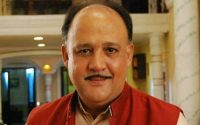Supreme Court says court can’t compel legislature to frame law on compulsory voting
Source – firstpost.com
New Delhi: The Supreme Court on Friday sought to know whether it can hear a PIL seeking a direction to Centre for ensuring compulsory voting in polls when the issue squarely fell within the domain of the legislature.
The apex court observed that it is Parliament’s job to take a policy decision, but if it does not want to frame a law, can the court deal with the issue.
“We believe in the legislature doing the job and we cannot compel it to frame a law,” a bench headed by Justice J Chelameswar and Justice Amitava Roy said.
The court’s remarks came after counsel for the petitioner said it was in the interest of democracy that more people vote in the elections.
“We are not on desirability but on the limited question whether such a direction can be given by us,” the bench said.
Attorney General KK Venugopal, appearing for the Centre, said that Section 79(d) in the Representation of the People Act provided the right to a person to vote or refrain from voting at an election.
He said that after the 2013 NOTA verdict of the apex court, a person has got the right to refrain from voting in any election and therefore voting cannot be compulsory.
The bench said it would hear the plea in detail after the Dussehra vacation.
Earlier, the Centre had told the apex court that exercising one’s franchise was the fundamental right of every citizen but not a duty.
It had also sought dismissal of the plea filed by one Satya Prakash and called for judicial restraint in dealing with matters involving policy and law-making, which were an exclusive domain of legislature. It had blamed low turnout of voters in polls to inadequate social awareness rather than legislative deficiencies.
The plea had said the concept of mandatory voting was successful in countries like Argentina, Australia, Belgium and Brazil and can be implemented in India as well.
The apex court in 2014 had sought a response from the Centre and the Election Commission on the PIL that has also sought directions for ensuring the maximum number of adult citizens “exercise their right to cast votes.”
The citizens here “enjoy” various fundamental rights under the Constitution, but the accountabilities do not include the responsibility to cast the votes, it had said adding that low voters’ turn out is still a matter of concern.
The Central government had earlier appointed a panel to suggest on the issue of fundamental duties of the citizens and the committee headed by Justice JS Verma, in its report in 1998, had said the “duty to vote in an election, especially to participate in a democratic process of the government and pay taxes, should be included in Article 51A of the Constitution.”
The PIL has also referred to the Gujarat Local Authority Laws (Amendment) Bill that had the provision to make voting compulsory and the persons, who do not vote, were required to explain within 30 days about the reasons for not doing so to avoid punishment.



